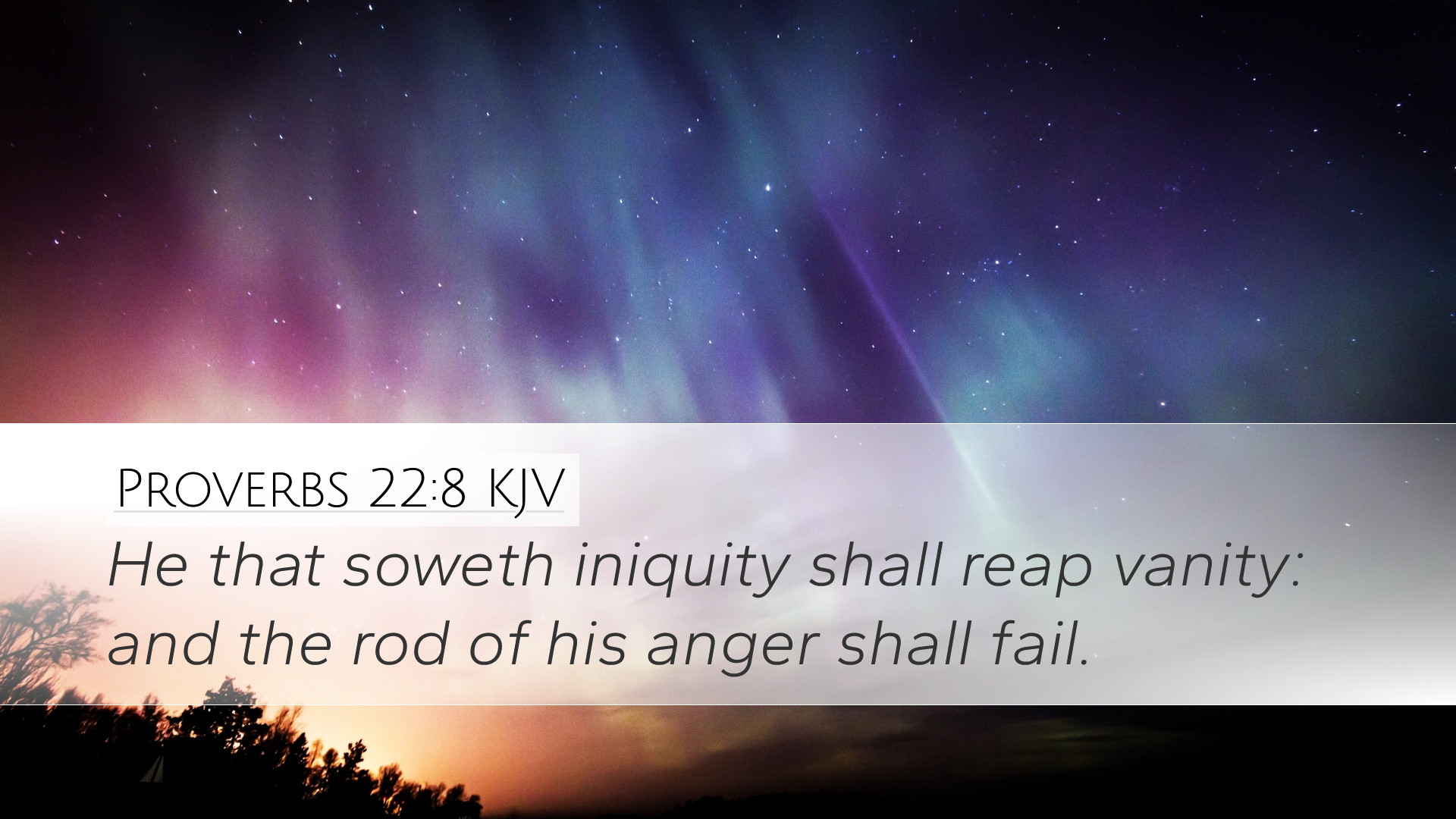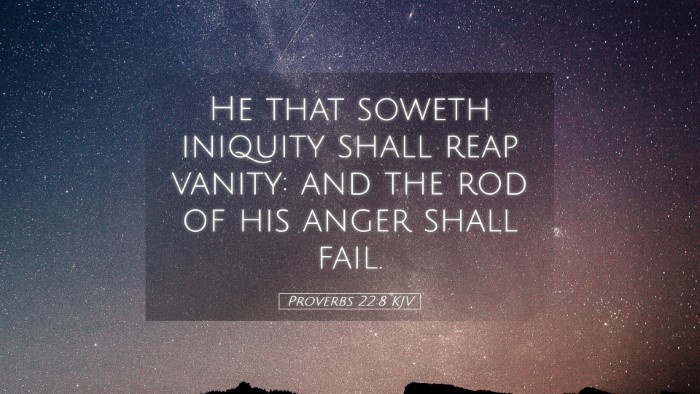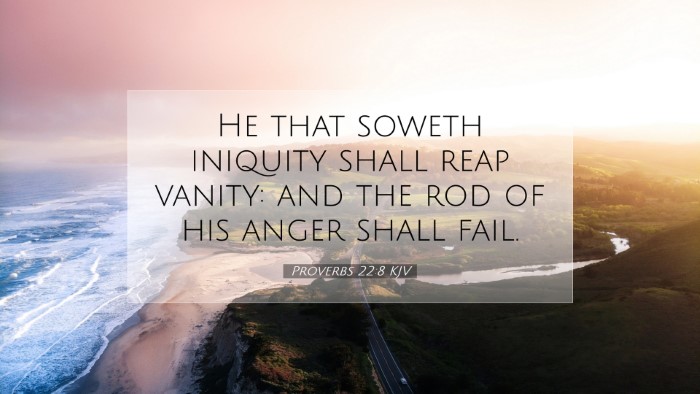Commentary on Proverbs 22:8
Verse: "He who sows iniquity will reap sorrow, and the rod of his anger will fail."
Introduction
The book of Proverbs is a compilation of wise sayings and teachings that provide insight into living a godly life. Proverbs 22:8 serves as a stark reminder of the consequences of immoral behavior and the inevitable return of one's actions. The verse nuances the idea of divine justice and the moral order established by God.
Exegesis of the Text
The phrase "sows iniquity" metaphorically indicates the act of engaging in sinful or unethical actions. The expectation set forth in this verse is that these actions will lead to a certain outcome: "will reap sorrow." This law of sowing and reaping is a common theme throughout Scripture, where our actions eventually bear fruit.
Matthew Henry's Insight
Henry emphasizes the moral principle that one cannot escape the consequences of their behavior. He notes that "iniquity" refers not only to overt acts of sin but also encompasses attitudes and intentions of the heart. The reaping of sorrow is seen as both a present and future consequence, reinforcing the necessity of integrity in one's dealings.
Albert Barnes' Commentary
Barnes elaborates on the contrast between sowing and reaping, highlighting that the fruit of one's deeds will align with their nature. He reminds the reader that trials may come as a result of one’s actions, emphasizing the severity of God’s judgment on iniquity. Barnes also points out that "the rod of his anger" symbolizes discipline or punishment, which serves as a reminder for the transgressor that their ways are bound to fail.
Adam Clarke’s Perspective
Clarke interprets "the rod of his anger" as the temporal consequences that follow sinful actions. He notes that those who act unjustly may experience short-lived successes, but ultimately, their anger and strife lead to their downfall. Clarke connects this verse to the broader biblical theme of divine retribution, where God allows the consequences of one’s actions to serve as a lesson, turning the heart towards righteousness.
Theological Implications
Understanding the broader theological implications of this verse illuminates the character of God and His justice. The reality of sowing and reaping reiterates the balance within God’s creation, wherein sin inevitably leads to disorder. It prompts a reflection on personal conduct, urging individuals to contemplate their actions, seeds sown, and the potential harvest that awaits them.
Application for Today
- Moral Integrity: This verse is a clarion call for moral integrity in all aspects of life—personal, professional, and spiritual.
- Reflection on Consequences: It urges believers to carefully consider the potential outcomes of their actions and cultivates a spirit of accountability.
- Encouragement for Righteousness: By recognizing the dangers of iniquity, this proverb encourages individuals to pursue righteousness, knowing that good seeds yield good fruit.
- Hope in Restoration: Although it speaks of sorrow, the broader biblical narrative provides hope for redemption and restoration through genuine repentance.
Conclusion
Proverbs 22:8 stands as a profound statement on the nature of justice and moral law. This wisdom literature encapsulates the biblical truth about the consequences of sin and the imperative to live a life aligned with God’s precepts. As pastors, students, theologians, and scholars engage with this text, may it ignite a passion for pursuing righteousness and understanding the deep implications of our sown actions.


